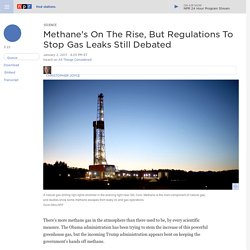

1 million emplois pour le climat 12 janv 2017. Surprise! Looks like 2016 is going to be the hottest year in history. The European Union’s Copernicus Climate Change Service has announced that 2016 will be the warmest year in recorded history — by a lot.

The Arctic had an especially warm year, and experienced the sharpest rise in temperatures, while Africa and Asia also felt unusually high temps. Globally, surface temperatures climbed to an average 58.6 degrees F, 2.3 degrees F higher than before the Industrial Revolution, when humans got serious about burning fossil fuels. The warming temps continue a well-established trend: Last year was also the hottest year on record at the time, and 2014 was the hottest year on record before that.
In fact, 10 of the hottest years on record have occurred since 1998. This warming trend has name — it’s called climate change, if you weren’t aware — and these rapidly accelerating temperatures come with severe consequences, including worsening storms, wildfires, droughts, and other extreme weather events. World heat shatters records in 2016 in new sign of global warming. Nearly all coral reefs will be ruined by climate change.
The European Union’s Copernicus Climate Change Service has announced that 2016 will be the warmest year in recorded history — by a lot.

The Arctic had an especially warm year, and experienced the sharpest rise in temperatures, while Africa and Asia also felt unusually high temps. Globally, surface temperatures climbed to an average 58.6 degrees F, 2.3 degrees F higher than before the Industrial Revolution, when humans got serious about burning fossil fuels. The warming temps continue a well-established trend: Last year was also the hottest year on record at the time, and 2014 was the hottest year on record before that. In fact, 10 of the hottest years on record have occurred since 1998. Antarctica’s fourth biggest ice shelf is on the verge of collapse.
A rift that has been wending its way across Antarctica’s massive Larsen C ice shelf just made another leap forward, growing by more than 10 miles, scientists monitoring it reported Thursday.

Now, a chunk of ice bigger than New York’s Long Island is hanging on by a relative thread. When it breaks off — possibly very soon — it could put the ice shelf in a more precarious position that could eventually lead it to disintegrate. That could contribute further to the global sea-level rise that is threatening the many populous cities that lie within a few miles of the world’s coasts. “This event will fundamentally change the landscape of the Antarctic Peninsula,” the scientists at Project MIDAS, an Antarctic research effort that has been watching the rift closely, wrote in update.
The rift runs for more than 50 miles from south to north across the ice shelf, which is a vast platform of ice floating atop the ocean. Planetman à table. Non, le réchauffement climatique ne s’est pas arrêté en 1998. La « pause » observée entre 1998 et 2012 était liée à l’introduction d’une nouvelle technique de mesure.

N’en déplaise aux climatosceptiques. Sans l’arrivée imminente de Donald Trump à la Maison blanche et l’installation d’une administration américaine dominée par les climatosceptiques, l’information n’aurait pas sans doute pas été autant commentée. Dans l’édition du mercredi 4 janvier de la revue Science Advances, des chercheurs américains conduits par Zeke Hausfather (université de Californie, à Berkeley) montrent, réanalyse de l’ensemble des données à l’appui, que le réchauffement ne s’est nullement arrêté en 1998 – contrairement à une légende entretenue par les réseaux climatosceptiques. C’est ce qui fait tout le sel des résultats publiés par M. Hausfather et ses coauteurs : ils montrent que non seulement le réchauffement n’a pas cessé en 1998, mais aussi que les chercheurs de la NOAA n’ont commis aucune distorsion des données scientifiques.
Les données des bouées Argo. For the last time, warming is not slowing down! That’s according to a new study in Science Advances, the latest installment in a debate that has refused to die.

The controversy started in 2013 with a report from the Intergovernmental Panel on Climate Change suggesting that global warming had stalled. Researchers scrambled to explain what looked like a “warming hiatus,” while skeptics seized on those weird numbers to attack climate science. The confusion should have been cleared up in 2015, when the National Oceanic and Atmospheric Administration (NOAA) found that a shift from ship-based measurements to ocean buoys could explain the low values. There was no “hiatus” at all. Republican Rep. This latest study “shows that NOAA got it right,” says Zeke Hausfather, a data scientist at UC Berkeley. Researchers had long measured ocean temperatures from the warm bellies of ships, Hausfather says. This latest study should put an end to the debate, Hausfather says.
Greenhouse Gas Regulations Of Methane May Be First To Be Repealed. A natural gas drilling rig's lights shimmer in the evening light near Silt, Colo.

Methane is the main component of natural gas, and studies show some methane escapes from leaky oil and gas operations.